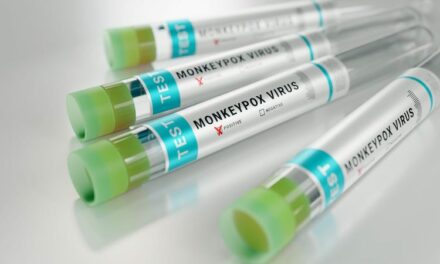The U.S. Food and Drug Administration (FDA) is advising people to use swab samples taken directly from a lesion (rash or growth) when testing for the monkeypox virus.
The FDA is not aware of clinical data supporting the use of other sample types, such as blood or saliva, for monkeypox virus testing. Samples not taken from a lesion may lead to false test results.
Monkeypox virus tests are used to determine if a person is infected with the virus that causes monkeypox, which is a type of orthopoxvirus. The CDC’s FDA-cleared non-variola orthopoxvirus test can detect monkeypox from a lesion sample. This test is performed in many laboratories included in the CDC’s public health Laboratory Response Network (LRN) as well as additional large reference laboratories to facilitate testing capacity and access.
There may be laboratory developed tests (LDTs) available for orthopoxvirus, or specifically for the monkeypox virus, which have not been reviewed by the FDA. LDTs are tests that are designed, manufactured, and used within a single CLIA-certified laboratory that meets the requirements to perform tests of high complexity. The FDA has generally exercised enforcement discretion for LDTs, meaning that, except in certain circumstances, the FDA generally does not exercise its authority to enforce the regulatory requirements for these devices, although it maintains that authority.
The FDA continues to monitor the situation with respect to appropriate policies for monkeypox tests.
Potential Risk of False Monkeypox Testing Results
- False-negative test results mean the test says the person does not have monkeypox, but they do have monkeypox. A false-negative result may lead to delayed diagnosis or inappropriate treatment. False-negative results can also lead to the infected person not taking action to limit their exposure to others, and further spread of the virus.
- False-positive test results mean the test says the person has monkeypox, but they do not have monkeypox. A false-positive result may lead to a delay in a correct diagnosis or the right treatment for the actual cause of the person’s illness, which could be a disease other than monkeypox.
Since the United States detected its first case of the 2022 monkeypox outbreak, the FDA has worked with the CDC, commercial laboratories, and manufacturers to make tests more readily available to patients and providers who need them





